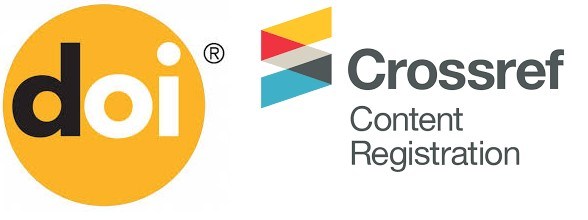HUBUNGAN POLA ASUH PERMISSIVE INDULGENT TERHADAP PERILAKU PROSOSIAL ANAK USIA 5-6 TAHUN
Abstract
Penelitian ini diakukan untuk mengetahui korelasi pola asuh permissive indulgent dengan perilaku prososial anak usia 5-6 tahun di 4 TK pada Kecamatan Pasar Kliwon, Surakarta. Penelitian ini menggunakan pendekatan kuantitatif dengan metode korelasi. Data penelitian ini melibatkan 94 responden orang tua yang bekerja dengan 9 guru TK B yang terdapat anak dengan pola pengasuhan permissive indulgent. Metode yang digunakan dalam pengambilan populasi dan sampel yakni non probability sampling dengan jenis purposive sampling. Hasil uji korelasi pearson menunjukkan adanya hubungan positif yang signifikan antara pola asuh permissive indulgent dengan perilaku prososial anak usia 5-6 tahun. Nilai signifikan = 0,025 (p < 0,05) dan nilai koefisien korelasi sebesar 0,346 yang termasuk kategori hubungan rendah. Artinya, semakin tinggi pola asuh permissive indulgent diterapkan, maka perilaku prososial anak cenderung meningkat. Namun, kekuatan hubungan yang lemah ini mengindikasikan bahwa terdapat faktor lain yang mungkin memediasi atau moderasi hubunna tersebut, seperti empati, regulasi, emosi, jenis kelamin anak, maupun pengaruh lingkungan sosial.
Keywords
Full Text:
PDFReferences
Ahmad, M., & Wilkins, S. (2025). Purposive sampling in qualitative research: a framework for the entire journey. Quality & Quantity: International Journal of Methodology, 59(2), 1461–1479.
Baron, R.A. dan Byrne, D. (2005). Psikologi Sosial. Edisi kesepuluh: jilid 2. Jakarta: Erlangga
Beaty, J. (2013). Observasi Perkembangan Anak Usia Dini edisi Ketujuh. Jakarta: Kencana Prenadamedia Group.
Chen, J., Wang, X., Zhang, Y., & Li, Q. (2024). The role of gender in parenting style and children's belief in a just world: Evidence from early childhood education settings. Journal of Child and Family Studies, 33(1), 25–39.
Glenn Weisfeld. (2022). Comparative, developmental, and physiological evidence for Discrete Emotions Theory. Evolutionary Studies in Imaginative Culture, 6(1), 67–70. https://doi.org/10.26613/esic.6.1.274
Halliday, S. E., Dahinden, F. M., & Hascher, T. (2024). Prosocial behavior in early childhood across boys and girls: Associations among parent‑ and teacher‑report and child behavior on the dictator game. Early Education and Development. Advance online publication.
Hoffman, M. L. (2000). Empathy and Moral Development: Implications for Caring and Justice. Cambridge University Press
Kamas, L., & Preston, A. (2021). Empathy, gender, and prosocial behavior. Journal of behavioral and experimental economics, 92, 101654.
Linkiewich, D., Martinovich, Z., Howe, N., & Gokiert, R. (2021). Parental autonomy support and preschool-aged children’s self-regulation and independence. Early Child Development and Care, 191(13), 2070–2084.
Luo, X., Xie, Y., & Zhang, Y. (2024). Effect of Parenting Styles on Children’s Prosocial Behavior. Journal of Education, Humanities and Social Sciences IMPES, 26, 186–191.
Ma, Y., Chen, X., Nunez, A., Yan, M., Zhang, B., & Zhao, F. (2020). Influences of parenting on adolescents’ empathy through the intervening effects of self-integrity and sense of coherence. Children and Youth Services Review, 116, 105246.
Rahmawati, A., Fajrianthi, F., & Purwono, U. (2022). The Psychometric Properties of Parenting Styles and Dimensions Questionnaire-Short Form in Indonesia. International Journal of Evaluation and Research in Education, 11(1), 42-50.
Vasiou, A., Kassis, W., Krasanaki, A., Aksoy, D., Favre, C. A., & Tantaros, S. (2023). Exploring parenting styles patterns and children’s socio-emotional skills. Children, 10(7), 1126.
Wong, T. K. Y., Konishi, C., & Kong, X. (2020). Parenting and prosocial behaviors: A meta‑analysis. Social Development, 30(2), 343–373Childhood Education Journal, 1(3), 167-178.
Yong, G. H., Lin, M. H., Toh, T. H., & Marsh, N. V. (2023). Social-Emotional Development of Children in Asia: A Systematic Review. Behavioral Sciences, 13(2), 123.
Refbacks
- There are currently no refbacks.

1.png)









